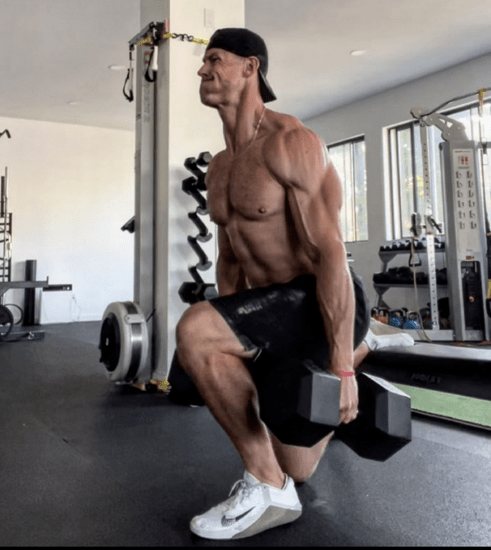
Many athletes, from baseball athletes wanting a stronger swing to basketball players chasing court speed, often prioritize skill-specific training in their quest for improvement. While honing specific skills is crucial, a recent study published in the Journal of Strength and Conditioning Research highlights the importance of building overall strength and power as a foundation for athletic performance.
D1 Training Henderson's Coach Aaron Hargreaves elaborates, "While skill-specific training has its place, neglecting overall strength and power can hinder athletic progress. A more powerful athlete is a better athlete”.
Power: The Engine of Athleticism
So, how does building power translate to faster sprints on the football field or a more powerful swing in baseball? Power, in essence, is the ability to generate maximal force in the shortest amount of time. This translates to explosive movements like jumping, sprinting, and changing direction, all crucial aspects of various sports.
A 2021 study in the International Journal of Sports Medicine found that athletes who incorporated power training into their regimen displayed significant improvements in agility, speed, and jumping ability. Coach Hargreaves emphasizes, "Developing power isn't just about strength in the gym; it's about training your muscles to fire quickly and efficiently. This translates to explosiveness and quicker movements on the field or court."
Beyond the Season: Prioritizing Rest and Off-Season Power Training
Athletes often face the challenge of balancing in-season demands with club seasons and skill-specific training. This can lead to overtraining, exhaustion, and increased risk of injury. It's crucial to prioritize proper rest and appropriate strength and power training during the season and utilize the off-season to focus on building power to become a better athlete.
By prioritizing overall strength and power development, athletes can build a solid foundation for their specific skills.
Q&A with sprint coach and former professional football player and current D1 training Henderson coach, Aaron Hargreaves and D1 Training Henderson:
Q: How often do athletes ask for more sports specific training?:
A: More than they should.
Q: What is one thing you would like each of these athletes to understand?:
A: That while practicing and perfecting your craft in your sport is very important, the strength and power that develop in your body is a direct way to enhance the output of your skills that you work in for your sport.
Q: Why should every athlete sprint?:
A: Sprinting is the most primal activity that a human can do. Improving timing, coordination, and limb mechanics create a more powerful, efficient athlete. Typically those who sprint well are the better athletes in team sports.
Q: Now that there is more science and you are an experienced coach, what would you change in your training when you were in high school and college?:
A: I was fortunate enough to be exposed to some incredible coaches. Looking back, I often thought that more training was better, as opposed to following the incredible instructions of the high end coaches. My one piece of advice to young athletes these days would be to seek out a high end coach and absorb their information.
Q: What sports did you play?:
A: Soccer, baseball, hockey, track and football.
Q: Did Sprinting help you become a better athlete in any of those sports?
A: Absolutely. Again, not realizing it at the time, but the methodical dosages of training, instruction on mechanics all led to me becoming a pretty fast athlete. I have also learned that sprinting does not necessarily only transfer to running, but other sports like hockey, change of direction. I hear a lot of parents requesting agility training because they want their athlete to have faster feet, but they don’t necessarily realize that change of direction is a result of power. There should be more attention on change of direction and power output.
Also, I always thought, you see someone who is 30 or 40 and they workout and you ask them to run, and they never learned how to sprint properly, so now they are trying to learn as an adult. Meanwhile, the neuromuscular wiring at a young age, by the time you are 18-20 you already have the repetition and patterns in your system and you will be ahead of someone who is late to the party, for example, someone who only played baseball for 10 years and never perfected sprinting and transferring power.
Q: Were you planning on becoming a wide receiver?
A: No. I played baseball for 10 years and one day I was burnt out. I quit. Finally agreed to give football a shot. I went out as a kicker. They realized pretty quickly this guy is probably the better athlete on the team, how else can we use him.
Q: Let me give you some thoughts and tell me if I am correct. A lot of young athletes, even under the age of 10 years old, are choosing their sports and positions. We see a lot of young athletes come into D1 and say they want to be a QB. The problem is, statistically they probably will not be, but these children are only training for one position. At that age it is impossible to really know how their body frame will develop, let alone how they will develop athletically. Then, they find themselves in high school, perhaps not being the QB and they do not have the skills or athleticism to play other positions. They find themselves on the bench. Developing a wide athletic base not only helps them to become better in their chosen sport and position, but they may also be able to adapt to a different position or sport. I believe that is exactly what happened with you? You were training to play baseball and then only started football, planning to be a kicker, in your senior year of high school. At that point the coach realized they could use you as a WR and you went on to have a professional career as a WR, all because you were ready?
A: That is right. I played baseball for about 10 years and was planning to go to college with that, but my senior year of high school, that all changed. The football coach was always trying to get me to play, but I did not have the time because of other sports. I was burnt out from baseball and wanted to try something new. The reason I succeeded at football was because it was new and fun and I accidentally had prepared myself athletically through training and preparation to succeed.
Q: What type of training and preparation?:
Sprint work, track work, strength training.
